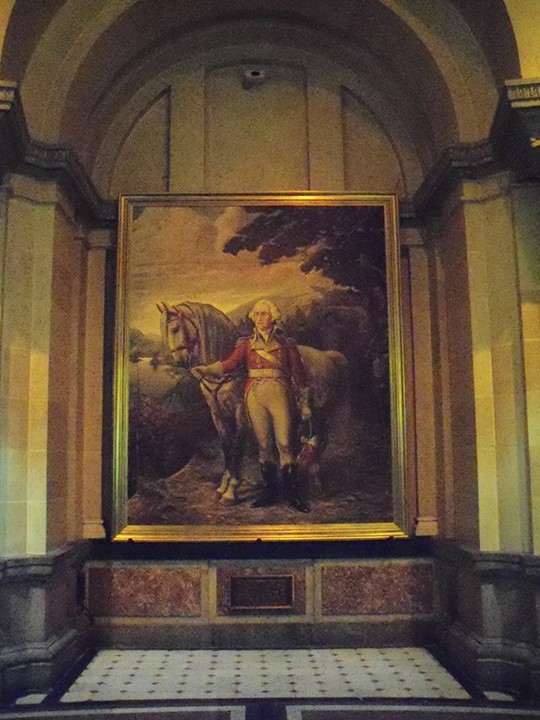
Monday, 6 April 2015
It is sown in dishonor, it is raised in glory. 1 Corinthians 15:43
Paul is speaking of the form of the resurrection, responding to the question which had been asked, “With what body do they come?” Like the previous verse, he gives contrasting thoughts. When our current body dies he says, “It is sown in dishonor.” Why do we bury bodies? The answer is because they quickly begin to degrade and become offensive to the senses, and so we secret them away because of the shame (the dishonor) which occurs in them. This state of decay is a direct result of something else which is shameful, sin.
When Adam sinned against the Lord, he hid himself and covered himself with fig leaves. There was dishonor in what occurred. When the man sinned, he died spiritually. Further, as a result of this spiritually dead condition, the Lord told him he would also die physically. He would return to the dust from which he came. After this, the Lord clothed him with a tunic of skin, thus covering him. All of this indicates that shame and dishonor is associated with this life in which we live. The stain continues in all men because all are in Adam and thus all have sinned. The result of this is death. And the result of death is being “sown in dishonor.”
However, for those in Christ, the seed that is planted will be “raised in glory.” There is now no condemnation for those who are in Christ. Sin is no longer imputed to us because we have moved to Christ. Therefore, when this body of sin is taken away, what comes from it will be glorious. The Greek word for “glory” is doxa. It carries the meanings of, “honor, renown; glory, an especially divine quality, the unspoken manifestation of God, splendor.” The fallen image of Adam will be replaced with the glorious image of Christ.
In addition to this, Paul notes that, “It is sown in weakness.” Our human lives are exceedingly frail. Our bodies are susceptible to all kinds of limitations and potentially catastrophic occurrences. We cut easily, bones break, sickness is always around the corner from infections, pollens, viruses, etc. The earthly body that we exist in is temporary and degrades in just a few decades. At the end or our days, it is sown in this same weak condition and degrades even more swiftly until it is nothing but dust once again.
However, for those in Christ, the seed which is planted “is raised in power.” As Paul is giving contrasts, the word for power is to be taken as the opposite of “weakness.” It is the Greek word dunamis. It can carry a host of meanings including physical strength, endurance, and the like. The “weakness” spoke of frailty and eventually death. The “power” then is speaking of robustness, hardiness, and life. We will not be susceptible to the same limitations and ultimate termination that we now face. Instead, a whole new order of existence will be realized.
Life application: At this time, we can only imagine the state of our future body in relation to what our current body is like. We can make logical assumptions of what lies ahead, but we cannot know exactly what it will be like. However, we can be certain that our bodies will be fitting for being in the presence of the God of glory, and they will be sufficient to last us for all eternity there in that wondrous place.
Lord God, Christ arose conquering death for all who place their faith in Him. This is what the Bible proclaims. I want a ride on that train, a walk on that path, and a future with that certain guarantee. I want what Jesus offers! I believe and I receive. Jesus Christ died for my atonement and He rose for my justification. I receive the Gift and I call on the name of the Lord Jesus. Hallelujah and Amen!




